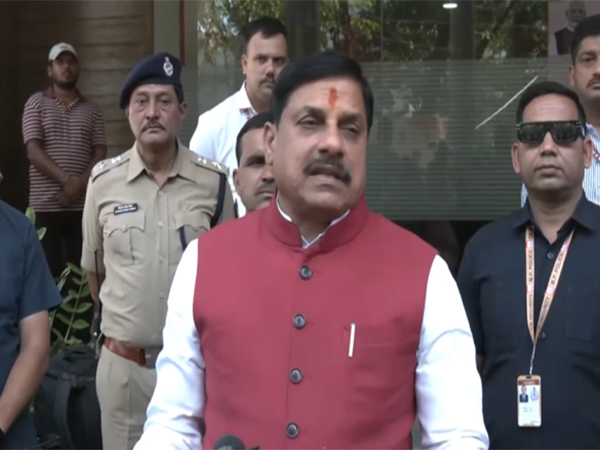Upgradation of financing mediums to activate growth in solar rooftop market
Apr 30, 2021

New Delhi, (Delhi), [India], April 30 (ANI/NewsVoir): The conscious shift of consumers towards sustainable living has propelled demand for solar rooftop solutions, making it an obvious choice for businesses and homes in the long-run. The eco-friendly solution not only cuts electricity spends but also guarantees reduction in carbon footprints. Now, to cater to the rising demand of end-users and make installations easier, industry leaders are vouching for upgradation of financing mediums to activate growth in the rooftop solar market.
"Since rooftop solar is capital intensive, financing has a major role to play for a quick and large deployment just like we witnessed the role of financing in the automotive sector. We can reduce or eliminate the upfront capital expenditures required by the clients and provide them the flexibility to pay either in monthly installments or simply for only for the solar energy they consume. Thus, financing can be made more accessible if we focus more on saving energy through innovative financing strategies," said Gagan Vermani, CEO and Founder, MYSUN.
However, there is a definite need to innovate and watch out to micro, small and medium enterprises (MSMEs) and SMEs by the government. These enterprises are considered to be one of the high-risk borrowing segments of the renewable economy. Sharing his vision concerning the expectations from the government policies in upgrading the financial techniques, he added, "So far the government hasn't taken any meaningful steps to innovate or improve the rooftop solar financing situation for SMEs and MSMEs. There are some isolated cases like SIDBI providing solar loans to their SME/MSME clients. But the challenge is that there is no broad-based mandate to banks to fund 'X' number of SMEs/MSMEs every year and there is incentive for banks for such solar loans."
The other financing institutions are not well equipped to determine solar systems. Therefore, Non-Banking Financial Companies (NBFCs) help to finance solar installations on residential properties. Adding to the point he said, "Some NBFCS have provided solar developers funding for onward financing to the residential consumers. But this NBFC financing is not only quite expensive but also requires the solar developer to virtually underwrite the entire risk for the solar loan. This means that there is actually no innovation in financing but just that the risk has moved from the NBFC to the solar developer. So, apart from some initial traction, this type of NBFC financing is not a long-term solution to scale up the market."
Instead of NBFC financing, consumers can opt for other plausible options to finance their rooftop solar installations through a durable loan or a personal loan. "For homeowners, a home loan extension to fund their rooftop solar systems is a good option to avail long-term and low-cost financing. Also, some solar companies have innovative financing products for their solar solutions where the customer can avail 1-3 years loans with nil or minimum down payment plans," he added.
Various startups and businesses suggest solar market solutions and forecast the government to implement certain policies in favor of solar segments that may help in absorbing risks which will definitely boost banks in lending. "The risk can be categorized broadly in two segments. One-DISCOM/net-metering timely clearance. There should be long term policies and a transparent mechanism in this regard. Thankfully, there is no construction risk in rooftop solar. Second- since the project sizes are quite small, banks find it extremely onerous to assess risk for individual projects/ clients," he said.
Extending various suggestions in which the government can function to boost the energy sector, he opined, "Banks should be mandated to provide 'X' number of SME/MSME clients and a quantifiable MW target per annum. Most SME/MSME solar projects would be in the range of Rs. 20 lacs TO 3 CRS (50 KW TO 1MW). Banks should fund not less than 70 per cent of these costs and in return the banks should be provided with at least 50 per cent security cover by the government. Also, banks and solar developers should tie-up to provide credit-lines to developers with set criteria for the onward lending. That will reduce the risk assessment costs as well as the time involved in this exercise. The rate of interest should be closer to the home loan rates. They can also be provided with the legal teeth to disconnect electricity to defaulting clients should be provided."
To sum up, there are plenty of choices for the end consumer to finance their rooftop solar installations only if there is certain awareness of available options to make the right financing choice. There is a need for a clear policy framework and innovative measures by the government to increase momentum of growth in the energy sector.
This story is provided by NewsVoir. ANI will not be responsible in any way for the content of this article. (ANI/NewsVoir)




















